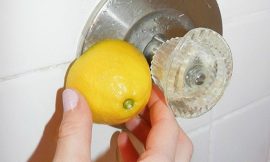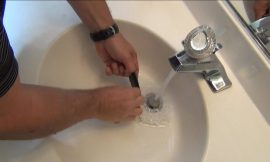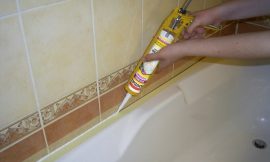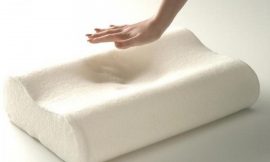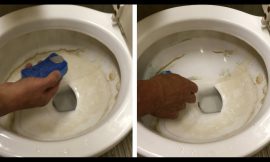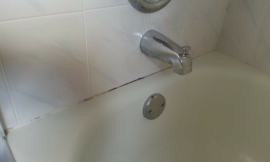Calcium and magnesium – the worst enemies when it comes to cleaning! Yes, these are great for your body, but for your bathroom ware, calcium and magnesium are a real menace, being responsible for hard water deposits.
Dealing with hard water is pretty…hard, especially when it deposits on your faucets, sink, shower head, tub, shower glass doors and so on. Of course, these are some of the objects were we can actually see hard water deposits, but there is a place in our bathroom that we often forget to clean, were lime scale build up blocks the water flow – the toilet bowl.
Even if we clean and disinfect our toilet bowl, most cleaning products won’t remove the hard water coat, and even if it does, it will come back again and again. Unless…you use the right product combo, especially designed to remove lime scale build up and hard water stains as quick as possible.
After a time of wondering how, I found the perfect way in removing hard water along with those pesky rust stains stuck on those toilet holes.
Continue reading this article and you will see what I’m talking about!
Grab These Ingredients:
- White vinegar
- Baking soda
- Paper towels
- Scrub sponge
- Plastic wrap
Step-By-Step Cleaning Plan:

- Start by soaking 7-8 paper towels in white vinegar.
- Roll the vinegar paper towels and stuck them under the toilet rim (under the holes). Try pressing on them to stay in place, if not, take some plastic wrap and cover them.
- Let the vinegar paper towels to do their job for 30 minutes, and then remove and throw them at the dumpster.
- Perfect! Now take the scrub sponge and soak it in water then sprinkle some baking soda over it.
- Start scrubbing the holes with it using circular motions. A fizzy reaction will appear when baking soda gets into contact with vinegar, which is good, because it will make lime scale build up and rust stains easier to remove.
- Repeat sprinkling baking soda on the sponge until you finish cleaning the entire rim.
- At the end, rinse the area by flushing the toilet 2-3 times to loosen all the residues.
Advice: if you leave in an area with hard water, you may have to repeat this process once every 2 months.



